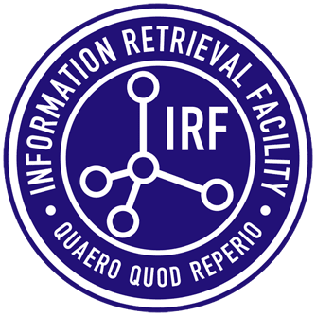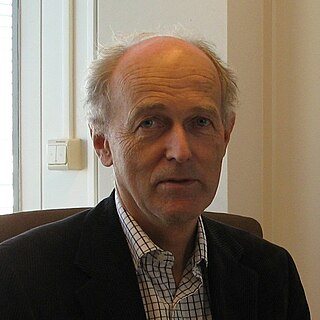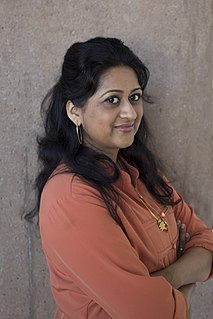Related Research Articles
Reference management software, citation management software, or bibliographic management software is software for scholars and authors to use for recording and utilising bibliographic citations (references) as well as managing project references either as a company or an individual. Once a citation has been recorded, it can be used time and again in generating bibliographies, such as lists of references in scholarly books, articles and essays. The development of reference management packages has been driven by the rapid expansion of scientific literature.

The Department of Computer Science at the University of Manchester is the longest established department of Computer Science in the United Kingdom and one of the largest. It is located in the Kilburn building on the Oxford Road and currently has over 800 students taking a wide range of undergraduate and postgraduate courses and 60 full-time academic staff.

The University of Moratuwa is a public university in Sri Lanka. It is located on the bank of the Bolgoda Lake in Katubedda, Moratuwa. Apart from academics including undergraduate and postgraduate studies, the University of Moratuwa presents social and cultural activities, student services, societies, and sports and recreational activities. The institution was known as Ceylon College of Technology, Katubedda before gaining university status. Its roots go back to the Institute of Practical Technology founded in 1960 to provide technical education.

Terry Benton Bollinger is an American computer scientist who works at the MITRE Corporation. In 2003 he wrote an influential report for the U.S. Department of Defense in which he showed that free and open source software (FOSS) had already become a vital part of the United States Department of Defense software infrastructure, and that banning or restricting its use would have had serious detrimental impacts on DoD security, research capabilities, operational capabilities, and long-term cost efficiency. His report ended a debate about whether FOSS should be banned from U.S. DoD systems, and in time helped lead to the current official U.S. DoD policy of treating FOSS and proprietary software as equals. The report is referenced on the DoD CIO web site and has been influential in promoting broader recognition of the importance of free and open source software in government circles. Bollinger is also known for his activity in the IEEE Computer Society, where he was an editor for IEEE Software for six years, wrote the founding charter for IEEE Security & Privacy Magazine, and received an IEEE Third Millennium Medal for lifetime contributions to IEEE. He has written about a wide range of software issues including effective development processes, cyber security, and distributed intelligence.
Brian Henderson-Sellers is an English computer scientist residing in Sydney, Australia, and Professor of Information Systems at the University of Technology Sydney. He is also Director of the Centre for Object Technology and Applications at University of Technology Sydney.

The Technical University of Crete is a state university under the supervision of the Greek Ministry of Education and was founded in 1977 in Chania, Crete. The first students were admitted in 1984. The purpose of the institution is to conduct research, to provide under-graduate and graduate educational programs in modern engineering fields as well as to develop links with the Greek industry.
The Antwerp Management School is the University of Antwerp's autonomous business school. It is located in the historical center of the city of Antwerp.

The Information Retrieval Facility (IRF), founded 2006 and located in Vienna, Austria, was a research platform for networking and collaboration for professionals in the field of information retrieval. It ceased operations in 2012.

Jean Leonardus Gerardus (Jan) Dietz is a Dutch Information systems researcher, Emeritus Professor of Information Systems Design, and part-time Professor of Enterprise Engineering at the Delft University of Technology, known for the development of the Design & Engineering Methodology for Organizations. and his work on enterprise ontology.

Nalini Venkatasubramanian is a Professor of Computer Science in the Donald Bren School of Information and Computer Sciences at the University of California, Irvine. She is known for her work in effective management and utilization of resources in the evolving global information infrastructure. Her research interests are Multimedia Computing, Networked and Distributed Systems, Internet technologies and Applications, Ubiquitous Computing and Urban Crisis Responses. Dr. Venkatasubramanian's research focuses on enabling effective management and utilization of resources in the evolving global information infrastructure. She also addresses the problem of composing resource management services in distributed systems.

Willibrordus Martinus Pancratius van der Aalst is a Dutch computer scientist and full professor at RWTH Aachen University, leading the Process and Data Science (PADS) group. His research and teaching interests include information systems, workflow management, Petri nets, process mining, specification languages, and simulation. He is also known for his work on workflow patterns.
Junichi Iijima, Japanese, Enterprise Engineer and Professor of the Department of Industrial Management and Engineering at the Tokyo Institute of Technology in Japan.
Henderik Alex (Erik) Proper is a Dutch computer scientist, Professor of Information Systems at the Radboud University Nijmegen, and IT consultant, known for work on conceptual modelling of information systems and enterprise engineering.

Theodore Aloysius Maria (Theo) Bemelmans is a Dutch computer scientist and Emeritus Professor of Administrative Information Systems and Automation at the Eindhoven University of Technology.
Johannes Adrianus Petrus (Jan) Hoogervorst is a Dutch organizational theorist, business executive, management consultant, and Professor Enterprise Governance and Enterprise Engineering at the University of Antwerp, known for his work in the field of enterprise engineering.

J.B.F. (Hans) Mulder is a Dutch computer scientist, Venture manager in the IT industry, and Professor at the University of Antwerp, known for his work on enterprise engineering.
Robert Winter is a German business theorist, Professor of business & information systems engineering at the University of St. Gallen, and director of its Institute of Information Management. He is known for his contributions in the field of Enterprise Architecture and Business Engineering.
Martinus (Martin) Op 't Land is a Dutch organizational theorist, consultant and Professor of Enterprise Engineering at the University of Antwerp and at Antwerp Management School, known for his contributions in the field of Enterprise Architecture.
Jan Verelst is a Belgian computer scientist, Professor and Dean of the Department of Management Information Systems at the University of Antwerp, and Professor at the Antwerp Management School, known for his work on Normalized Systems.
A low-code development platform (LCDP) provides a development environment used to create application software through a graphical user interface. A low-coded platform may produce entirely operational applications, or require additional coding for specific situations. Low-code development platforms can reduce the amount of traditional time spent, enabling accelerated delivery of business applications. A common benefit is that a wider range of people can contribute to the application's development—not only those with coding skills but require a good governance to be able adhere to common rules and regulations. LCDPs can also lower the initial cost of setup, training, deployment and maintenance.
References
- ↑ Applications of Digital Image Processing. Vol 13. (1990) p. 227
- ↑ De Bruyn, Peter. "Towards designing enterprises for evolvability based on fundamental engineering concepts." On the Move to Meaningful Internet Systems: OTM 2011 Workshops. Springer Berlin Heidelberg, 2011.
- ↑ Hauge, Øyvind, Claudia Ayala, and Reidar Conradi. "Adoption of open source software in software-intensive organizations–A systematic literature review." Information and Software Technology 52.11 (2010): 1133-1154.
- ↑ Academic bibliography
- ↑ Herwig Mannaert at DBLP Bibliography Server